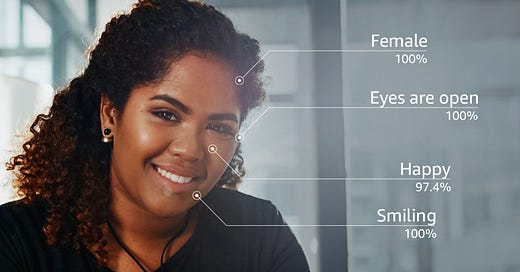The podcast is now available on Apple Podcasts and Spotify.
In this episode, episode 9, we discuss a new wave of companies removing access to their facial recognition technology for policing and law enforcement and we look at the newly released details of the PS5, one half of what is set to be the hottest competition for Christmas this year.
Facial Recognition in Policing
This is a topic that has a long history of debate and one that isn’t going to be going away anytime soon. It’s a debate that really comes down to ethics and with every new branch of technology or new use of an existing one we must return to the ethics debate. We must adjust our ethics to either accept to reject this new ‘thing’. It’s one which is rarely an absolute yes or no (I suppose there wouldn’t be much debate if it was), particularly when the technology or its use concerns the military or the police.
The debate around facial recognition technology and policing has been heated but on/off for many years, at least since 2015 when Leicestershire Police trialled it at Download Festival, then in 2017 when South Wales began trialling Automatic Facial Recognition at various large events such as football matches, royal visits and of course the annual Elvis festival. Earlier this year in January the debate was revived again when the Met Police started using Live Facial Recognition as part of business as usual following successful trials over the previous few years.
Now, in June 2020, the debate has livened up again. This seems to be largely as a result of the George Floyd inspired protests and new questions around discrimination in policing, particularly around discriminating against people of colour.
This current era of debate has now led to some of the worlds biggest tech companies and providers of facial recognition technology to pull their offerings from policing customers.
The week started with IBM stating that they oppose and “will not condone the uses of any technology, including facial recognition” for surveillance. What they suggested is that policing should make more use of data analytics and other evidence gathering tools such as body cams. We should note carefully here though that IBM has never been very strong in the field of facial recognition but does have a very strong offering in data analysis for policing. There’s no huge surprise that they’ve made this statement and it in fact feels more like a strategic sales pitch than a stand against bad actors.

Image: Amazon Rekognition can give various attributes such as gender and facial features.
Following this we saw both Amazon and Microsoft take a similar stance. Amazon who’s Rekognition software allows developers to easily add facial recognition to any of their software hosted on AWS, was the first to move with a banning of the technology for policing uses for a year. The thought here being that this will give law makers enough time to put together legislation and guidance to ensure that the technology is as free as possible from bias and has checks in place.
Microsoft, who are actually yet to sell any of their facial recognition technology to policing, have said they will not start to sell it the US forces until there is national legislation in place. It can be assumed that this stance applies outside of the US too.
From the perspective of these three companies this is probably a good stance to take. They are shielding themselves from any backlash should their technology be found to be used inappropriately or if found to have any bias, which it quite likely has to some extent. The issue around bias is significantly exacerbated in a policing context where any bias, no matter how small, is unacceptable.
From a much broader perspective though this stance by the worlds leading technology providers is quite concerning. Policing want the technology and have so far proven that it has a value to them. In the UK legislation generally supports its use and there’s precedent from a case with South Wales Police. This means that police forces will be developing the technology along with industry but are now having to do that without some of the biggest and best technology vendors. There could now be a real risk that the technology that’s developed and deployed by policing is subpar and presents an even greater threat of bias and negative outcomes for policing themselves and of course the innocent citizens it potentially impacts.

PS5 Announcement
The biggest battle in the tech world this year got a little more heated this week as Sony released details and images of the upcoming Playstation 5, more commonly known as the PS5. Details of its direct competition, the Xbox Series X, made by Microsoft, were released earlier this year.
The battle between Sony and Microsoft, PS5 vs Xbox, will be the hot topic for this years Christmas season. Expect debates and arguments as to which is the best (hint: their specs are pretty identical) and for parents expect empty pockets.

Image: Xbox Series X on the left, Sony PS5 on the right.
In terms of design the PS5 has garnered mixed reactions with many, myself included, thinking it looks rather like a cheap Wi-Fi router while the Xbox looks a lot more minimalist but perhaps a bit boring.
This will be the first major games console launch since the Xbox One and PS4 were released in 2013, to an equally big fanfare and debate. As with the release then this year it will largely come down to the games on offer. Each having various exclusives and first releases. The PS5 bringing back the much loved Gran Turismo driving simulator while the Xbox will see the hugely successful Halo series return.
Both consoles are disc-free meaning games would be downloaded rather than played from a disc.
Prices for the two consoles are yet to be released but it's expected that they’ll be around £500 and released sometime in October or November in plenty of time for the Christmas season. So with a few games and perhaps an extra controller we’ll most likely be paying towards £700 to get started.











Share this post